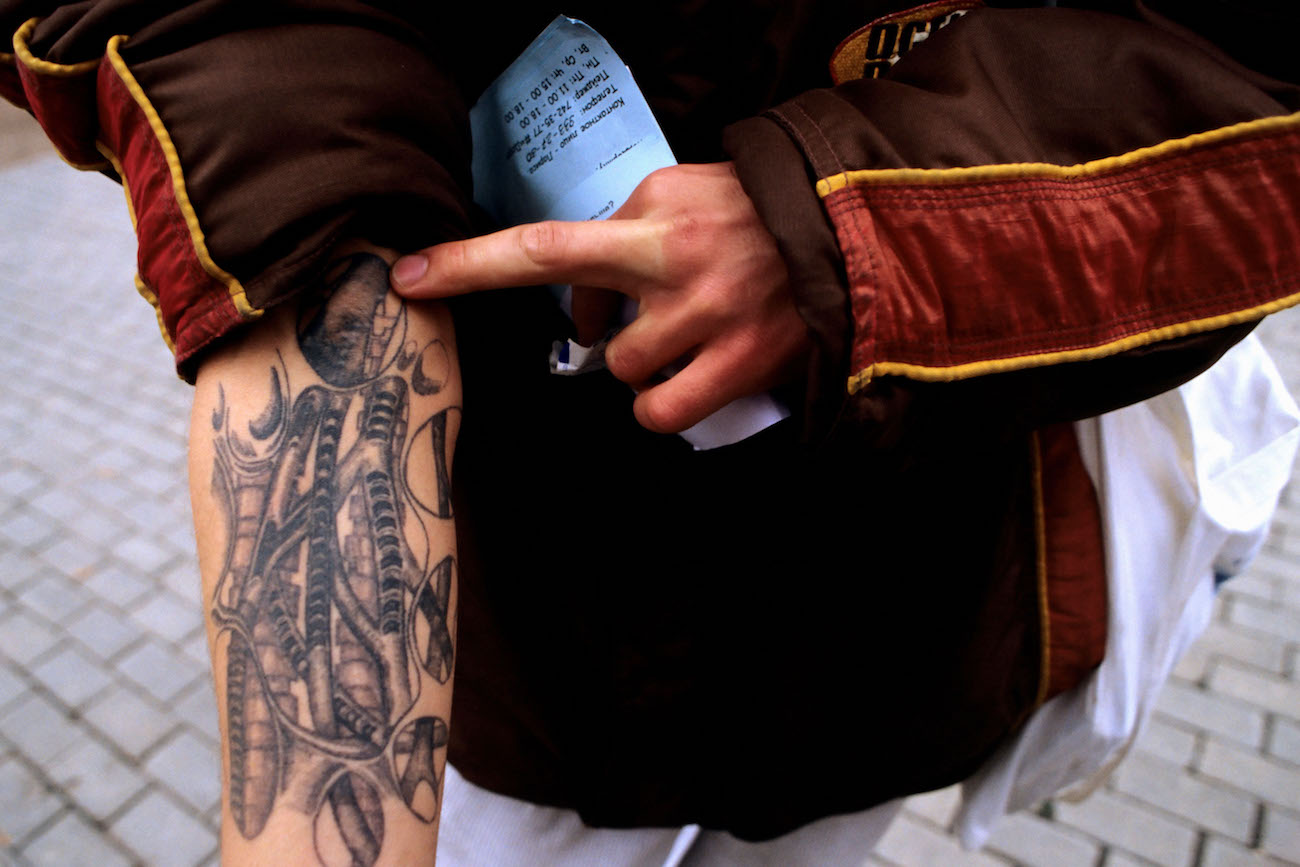Russia Is Punishing People for Helping Drug Users
Credit to Author: Niko Vorobjov| Date: Tue, 11 Dec 2018 14:32:09 +0000
Last month, a Moscow court ordered the city’s only drug harm reduction NGO, the Andrey Rylkov Foundation (ARF), to pay 800,000 roubles (£9,575) for publishing what it called “drug propaganda”.
The ARF had upset Russia’s delicate sensibilities with an article providing safety advice about synthetic cathinones (AKA mephedrone, or “bath salts”), published in a drug users’ newsletter called Hats and Bayan. The ARF didn’t recommend readers take these drugs – only to be careful if they did, by starting with a small dose and using water, pills and vitamin C to mitigate some of the drug’s more disagreeable effects.
As a result of the fine, the ARF – a skeleton crew battling Russia’s alarming drug-related HIV epidemic – is now fighting for its life. Amnesty International described the fine as “suffocating”. If they can’t get the money together by Christmas, they’re finished – and this will have a direct impact on Moscow’s most at-risk citizens.
The ARF is the only organisation providing Moscow’s heroin-injecting population with clean needles, HIV prevention and harm reduction advice. Their philosophy is that if people aren’t going stop using drugs, they might as well make it safer for those drug users, by handing out clean needles, condoms and naloxone, a life-saving remedy that can reverse the effects of an overdose.
Have you used drugs and have something to say about it? Click here to take part anonymously in the Global Drug Survey
“If we go, there will be no harm reduction services available in the city,” says Anya Sarang, president and co-founder of the ARF. “The state-run organisations refuse to provide these services, as they contradict the National Drug Policy that explicitly opposes a harm reduction approach. Drug users are the main group affected by HIV, but there is no state or city budget allocations for HIV prevention in key populations in Russia.”
The survival of the ARF is crucial, because what’s happening in Russia is nothing short of a catastrophe. Since the fall of communism and the lifting of the Iron Curtain, Russia has become the single biggest heroin market in the world. The drug poured in from Afghanistan, distributed by gangs and crime syndicates linked to corrupt elites and the Russian military, and caused an HIV crisis as drug users shared needles.
And it’s getting worse: according to the UN AIDS programme, from 2010 to 2015 Russia accounted for over 80 percent of new HIV infections across Central Asia and Eastern Europe, while the number of new infections across the rest of Europe and North America fell in the same period. Eastern Europe accounts for a quarter of the world’s injecting drug users, and most of these are heroin users from Russia and Ukraine. Russia now has the fastest-growing HIV epidemic outside Africa. By 2017, there were some 1.16 million diagnosed cases in the country, but the real number could be far higher.
Worse, fentanyl is now increasing the dangers for Russia’s vast heroin-using population. “Last year the number of ODs sharply went up, possibly because of fentanyl,” says Sarang. “We can’t say for sure, because there’s no official data, but the number of times someone’s called and told us they’ve had to use naloxone has doubled. So more people are overdosing.”

It’s a stigmatising attitude that infests the rest of society – even those sworn to save people’s lives. According to the ARF, doctors have been known to openly scorn patients and sometimes refuse to treat them outright if they are known drug users or HIV+. One particularly heart-breaking story came from the Global Commission on Drug Policy’s 2017 report, involving an HIV+ mother barred from giving birth in a hospital and later stitched up by police and thrown in jail.
Russia’s approach to the so-called propaganda spread by the ARF mirrors its gay propaganda law, passed in 2013, ostensibly to protect children from the menace of “non-traditional sexual relationships”. It effectively banned discussing LGBT relationships in any positive way in the public sphere, inciting harassment and even murderous violence in the process. Epidemiologists have also blamed the law for shutting down awareness of Russia’s mushrooming HIV epidemic.
Russia has now taken the global drug warrior crown from America. Earlier this year, Russia blasted Canada’s move to free the weed. Moscow sees any steps toward drug liberalisation as caving into the permissive, depraved, godless, homosexual, drug-addled West. It has also consistently used its influence at the United Nations to push back against measures like harm reduction or greater access to methadone. Russia still follows a Soviet-era understanding of addiction that expects addicts to go cold turkey, so putting them on methadone is seen as just trading one noxious high for another.
“I thought that because I was a drug addict, this was my destiny. All I wanted was to die painlessly,” says Maxim Malyshev, a former dependent heroin user from Tver, a city north west of Moscow. Diagnosed with HIV in 1997, he spent 15 years being locked up and busting out of several rehab centres, before recovering from his addiction. Now an outreach worker for the ARF, he’s deeply worried about an organisation that not only helped him, but thousands of others.
“ARF is the only organisation in Moscow that does social work, harm reduction and HIV prevention among people who use drugs,” Malyshev told me. “If we don’t raise this money the bailiffs will be forced to take it out of our account, and if this happens the work will simply stop and there’ll be no more nightly van with clean needles for users, no more testing on the streets, no more accompanied visits to the hospital and even no more heart-to-heart with drug users. Everything will be fucked.”
Niko Vorobjov is the author of an upcoming book about the drug trade, Dopeworld
This article originally appeared on VICE UK.